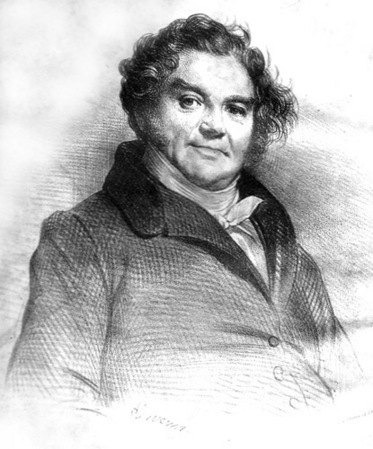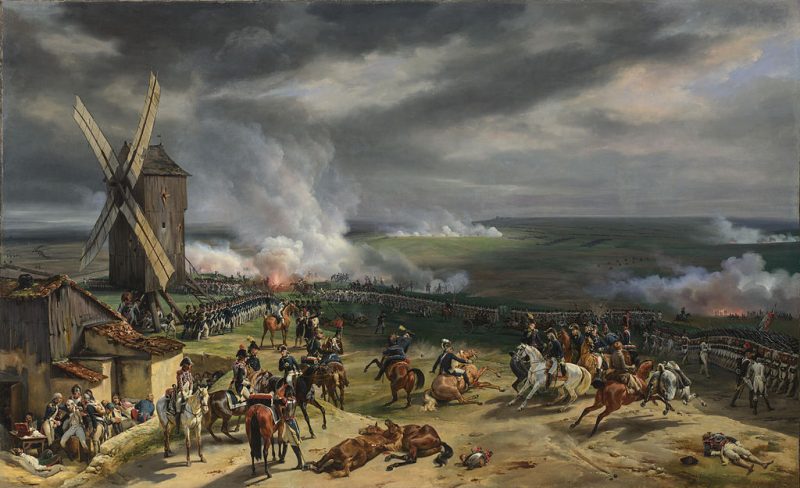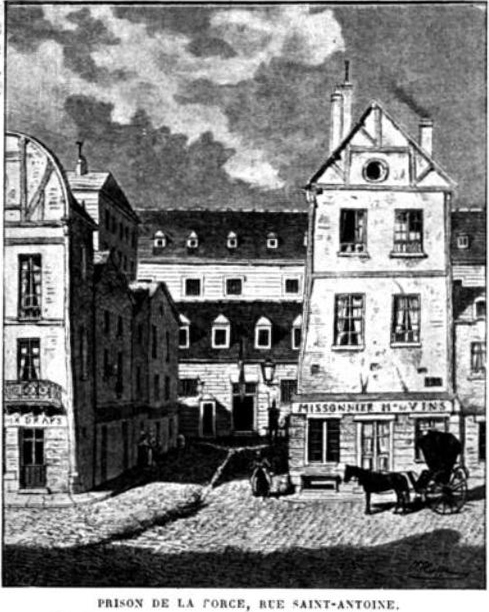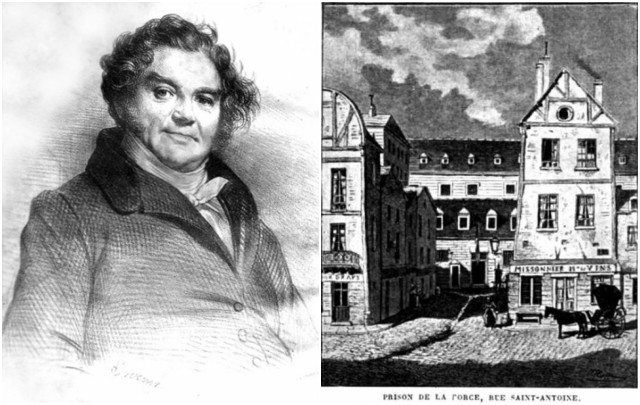Eugene Francois Vidocq was born on 24 July, 1775, in Arras, France. He was one of six children, raised in a fairly wealthy household, and he grew into a wild teenager.
Not much is known specifically about his childhood, but it is known that his early years were filled with one thrilling adventure after another.

He was a very talented child, but also very lazy. When he was just 13 years old he stole and sold his parents’ silver plates, spending the proceeds in a single day.
He was arrested three days later. It was his father who arranged his arrest, to teach him a lesson.
When he was 14-years old he stole 2,000 francs from his parents’ bakery and left for Ostend.
At the age of 15 he joined the circus, where he ate raw meat in a freak show. Later, he would come back to his parents seeking forgiveness.
When he was 16 years old he enlisted in the Bourbon Regiment. He fought bravely in two battles against the Prussian army, including the Battle of Valmy in 1792.
While in the army, he challenged fourteen people to a duel, killing two of them.
His military career came to an abrupt end when he was involved in a conflict with a superior officer. The officer refused to square off in a duel against Vidocq to settle their spat.
By the time Vidocq was 19, it was clear to him and to his superiors that a military life was not for him.
Vidocq hit the officer, and because of that he was about to face a death sentence, so he deserted.
After having spent several periods in prison, mostly for petty offenses, and having tried his hand at a number of trades, he offered his services to the state in 1809 and created a new police department under Napoleon.
He was tired of life on the run but his past had not equipped him well to do much else, except perhaps become a police spy.
His offer was accepted and he was sent to La Force Prison in order to collect and pass on information received from the inmates.
When he was released from prison he circulated in the French underworld.

Eventually, he formed a team of civilians to help him with his undercover work.
Most of the members of his team of civilians were criminals. He called it The Security Brigade.
After only one year the brigade was formally made part of the French Prefecture of Police and in 1812 it was recognized as a police security force.
Now Vidocq was the head of the world’s first plain clothes detective unit working undercover.
By the 1820s, the agency, now up to 28 agents, had been credited with reducing crime in Paris by more than 40 percent.
He revolutionized detective work by setting up a card index of crimes, criminals, and their methodology.
He made the first plaster casts of shoe impressions and he was the first to use ballistics in criminal investigations.
By 1811, Vidocq had become an expert in criminology, a strict record-keeper, and a ballistics expert. He would often dress as a beggar to disappear into the Parisian underworld.
Vidocq’s subtle, albeit unorthodox, techniques were ahead of their time.
He resigned on 20 June, 1827, at the age of 52, after an argument with his superiors.
Later when the police leadership had changed and a new king was on the throne, Vidocq was invited back. A year later he was out again.

In 1833, Vidocq went into private practice. He set up the “Le bureau des renseignements,” the world’s first private detective agency.
The agency had more than 40 agents (mostly ex-convicts) and solved several high-profile criminal cases that made headlines all over Europe.
The Paris police force kept a close eye on the agency and several attempts were made to put him out of business. In 1848, Vidocq had to close the agency.
Eugene Francois Vidocq died at the then very reasonable age of 82.
His life was an inspiration for famous authors such as Victor Hugo, Honore de Balzac, Emile Gaboriau, and Alexandre Dumas.
